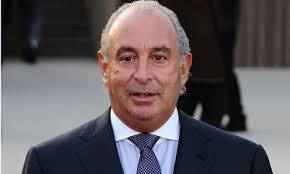The Legacy and Current Status of Sir Philip Green

Introduction: The Importance of Sir Philip Green
Sir Philip Green, the former chairman of the Arcadia Group, has been a prominent figure in British retail for decades. His influence on the high street and the fashion industry is substantial, having transformed a number of well-known brands. However, his legacy has become increasingly complicated following the collapse of his retail empire and ongoing controversies surrounding his business practices. Understanding his impact is essential for grasping the current state of UK retail.
The Rise of Sir Philip Green
Green began his career in retail with a fashion distribution company in the 1970s. He grew to prominence in the 1980s and 1990s by acquiring and revitalising well-known fashion brands such as Topshop, Miss Selfridge, and BHS. His business model focused on fast fashion, responding quickly to consumer demands and trends, which led to significant profits during the height of his success. At one point, he was hailed as one of the most influential figures in British fashion.
Controversies and Challenges
However, Green’s success has been marred by a series of controversies. In 2015, BHS, once a staple of the British high street under his ownership, went into administration, leading to the loss of thousands of jobs and a pension deficit affecting numerous former employees. The fallout from this incident prompted widespread criticism of Green’s management style and business ethics, including accusations of asset stripping.
Recent Developments
In recent months, discussions around Sir Philip Green have intensified due to ongoing legal battles and attempts to salvage his remaining businesses. He has also faced public scrutiny over allegations of inappropriate behaviour, which surfaced in 2018, prompting an investigation by the British press and regulators. As of now, he retains a significant stake in several brands under the Arcadia Group, but the future remains uncertain.
Conclusion: What Lies Ahead?
The legacy of Sir Philip Green serves as a cautionary tale for the retail industry. As high street shops struggle to adapt to changing consumer behaviours and the rise of online shopping, the failures and successes of figures like Green highlight the importance of sustainable business practices. The outcome of his current legal struggles and the fate of his remaining businesses will undoubtedly influence the retail landscape in the UK for years to come. For consumers and industry professionals alike, following his story remains significant as it underscores larger trends in business ethics and retail strategy.








